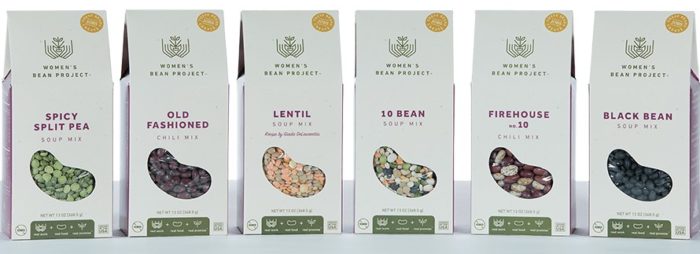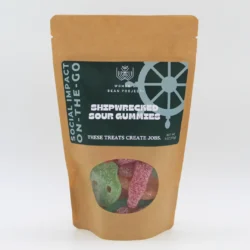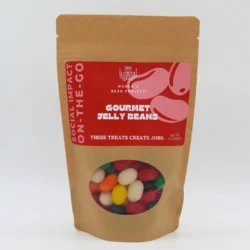Throughout the year, our blog series “Pearls: 30 Lessons Learned on Our 30 Year Journey” will be featuring lessons we’ve learned as an organization throughout the past three decades. These “pearls,” as we call them, illuminate how we’ve survived and thrived for 30 years.
It Takes Great Products to Last 30 Years
We’re lucky. With very little research, Jossy, our founder, landed on ten bean soup mix as our first product. She noticed that her friends were eating beans for health reasons and with that information she invested $500 of her own money and put two chronically unemployed women to work making Ten Bean Soup. Thirty years later, Ten Bean Soup is still our best seller.
In many ways this choice of first product line was smart. Beans are a commodity and prices stay relatively stable over time. At this point in time our purchase volume is high enough that when our bean supplier anticipates a significant increase in price for any particular type of bean, we can fix our price by committing to a purchase quantity, helping us keep our costs stable. Another great attribute of beans is that they are a rotation crop, used because they add nutrients back into the soil into which they are planted. Though not intended when the original product was developed, we love this as a metaphor for the program as well. I’d like to believe we are adding “nutrients” back into the community in the form of women who have the skills to get and keep employment.
While bean soup mix may have been a smart choice as our first product, it painted us in a corner in terms of seasonality. Despite our best marketing efforts, bean soup does not say, “summer.” As a result of our start with a winter seasonal product line and much of our early marketing efforts focused on holiday gift giving, today 70% of our sales occur between September and December each year. Through the years we have added other products, initially complementary to the soup mixes, such as baking mixes like cornbread, that has helped grow our sales.
We are delighted that our original product, along with our five other soup mixes, are such strong sellers after 30 years. To us, it is a testament to the quality of the product as well as the loyalty of our customers. However, we know the world of consumerism has changed since our founding in 1989. Today, people want to know from where their products are sourced, including the way down to the raw materials. In the 2018 Conscious Consumer Spending Index, 60% of consumers surveyed said that it is important to them to purchase food products in a sustainable way and 70% are willing to give up a familiar product for one without artificial ingredients. Sixty percent also said they are willing to pay more for these products.

Though it is not our mission to produce healthy, nonGMO, all natural products, we know that our customers care about these qualities and hold us accountable for the sources of our raw materials. Today we spend a lot of energy finding the best suppliers who can provide the cleanest raw materials to put into our products and we are proud of what we produce.
In addition to the tried and true Women’s Bean Project products, we have enjoyed creating new products that address other changes in how Americans eat. In the past few years the percentage of food budgets for eating away from home has exceeded 50%. Snacking and quick-meal consumption are up, leading us to introduce our instant Rice and Bean cups, ice-box jam mixes to go with our biscuit mix, and most recently, a line of snacks. You can expect to see even more new instant products – this time for breakfast – in early 2020.

Overall, it is important for us to continually produce a great core product, ensure we are staying current with consumer trends and make it easy for customers to support the Bean Project. Today, perhaps even more than 30 years ago, when customers buy our product, they aren’t just buying a soup or baking mix, they are buying a lifestyle, making a statement and showing themselves and others what they believe with their purchases. One thing hasn’t changed: sales create jobs, so the more our products resonate with customers, the more product we sell, the more women we will be able to hire. It takes great products to make this equation work.
Written by Tamra Ryan, CEO
Find the entire series of “Pearls: Lessons Learned on Our 30 Year Journey here.

















